Imodium For Dogs: Uses, Side Effects, And Alternatives

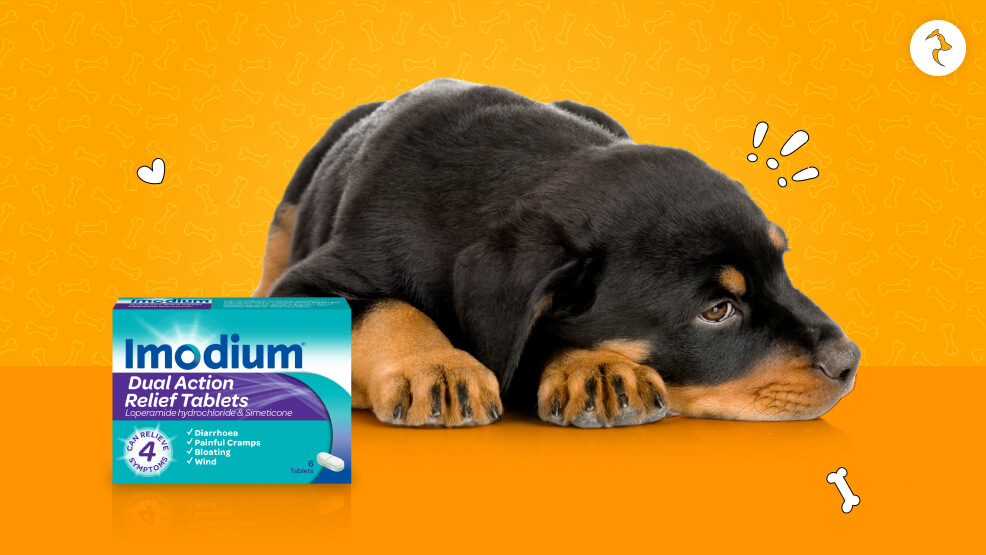
Imodium is a Loperamide medicament typically used for diarrhea treatment in Humans. However, it may, on rare occasions, recommending for dog use. So, if you have been wondering whether Imodium for dogs is a good idea, then the answer is not always!
If the person administering it has proper knowledge about why it is being used, how much should be given, what side effects might arise, and any alternative medications that could be useful.
Imodium For Dogs: What Is It?
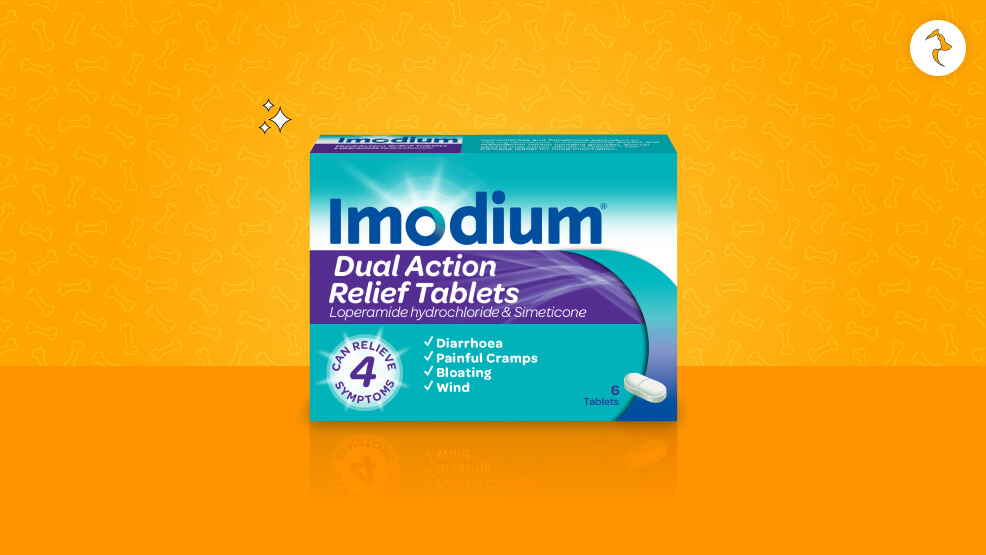
Imodium is a anti-diarrheal drug classifying as Loperamide. Its chief action is to inhibit intestinal motion to allow fluid absorption and thereby reduce the frequency of loose stools.
It is available in tablets, capsules, and liquids to treat acute and chronic diarrhea in humans. However, the drug is given approval for use in dogs, which means that a veterinarian must prescribe it.
Imodium For Dogs: When Can You Give It To Your Dog?

The only time when you should give Imodium to dogs during such situation as mild transient diarrhea such as:
- Ingestion of an inappropriate suspect
- Loose motions due to anxiety caused by travel, thunderstorms, or new environments.
- Minor bacterial imbalance in the gut.
- Sudden change in diet.
Imodium should only consider following veterinary advice. That dog does not seem the best candidate for Imodium therapy; typically, chronic or severe diarrhea indicates a condition that should be treated another way.
How Imodium Works?
Imodium effectively stops intestinal motility so that the bodily system may absorb electrolytes.
Therefore, firmer feces pass rather infrequently. It also relieves intestinal spasms that elicit pain and discomfort associated with diarrhea.
The drug works by binding to opioid receptors in the intestine, thereby reducing peristalsis- a sort of muscle contraction in the digestive tract and slowing stool passage.
How Much Imodium Can I Give My Dog?
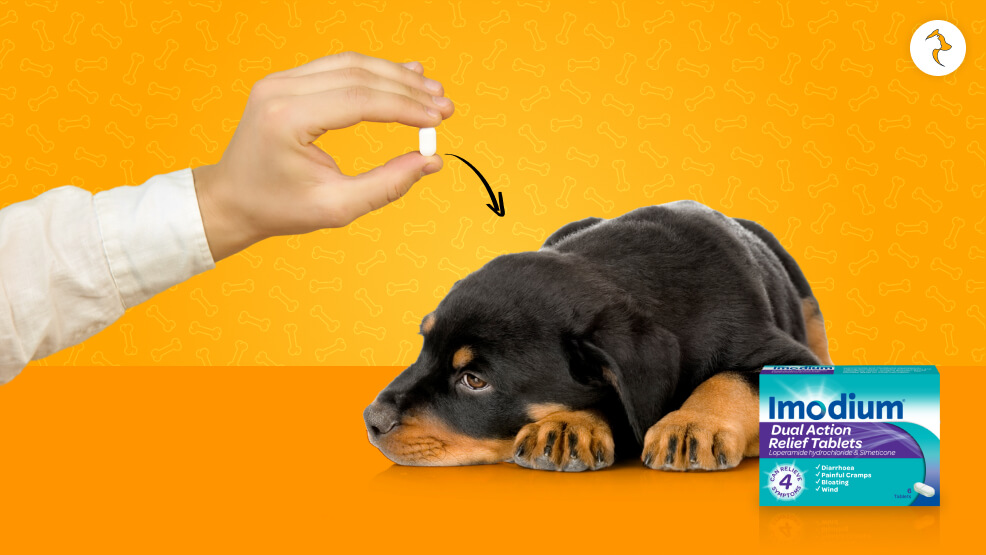
The Imodium dosage will also depend upon the dog’s weight and the type or variant of the Imodium preparation used.
Below is a rough estimate of an Imodium dose for dogs, but it is always wise to consult your veterinarian before giving any medication to your dog.
Imodium Dosage For Dogs (By Weight):
| Dog Weight | Imodium Tablet Dosage | Imodium Liquid Dosage |
| Under 10 lbs | Not recommended | Consult a vet |
| 10-25 lbs | 1 mg (1/2 tablet) every 8-12 hours | 0.5-1 ml per 10 lbs every 8-12 hours |
| 26-50 lbs | 2 mg (1 tablet) every 8-12 hours | 1-2 ml per 10 lbs every 8-12 hours |
| Over 50 lbs | 3 mg (1.5 tablets) every 8-12 hours | 2-3 ml per 10 lbs every 8-12 hours |
The Imodium Dosing Schedule For Dogs:
Imodium may be given once or three times a day at the maximum. After the first day, the dog must visit a veterinarian before continuing drug administration for a maximum of 48 hours. In the long run, constipation or toxic accumulation might occur.
Is Imodium For Dogs A Safe Option?
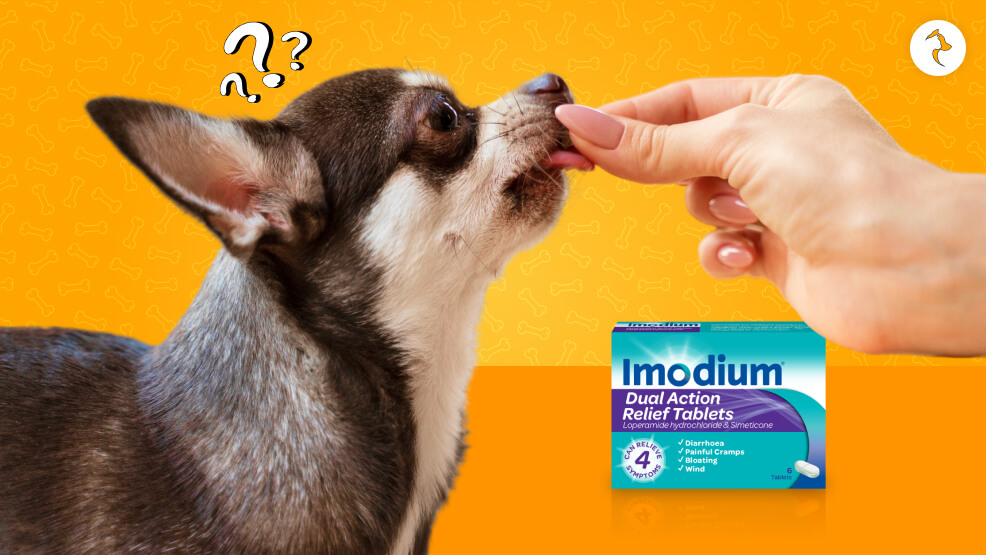
Not all dogs can take Imodium, but some can tolerate Imodium. It must not prescribe for the following situations:
- Breed susceptibility of toxicity is given to Collies, Shelties, Australian Shepherds, and Border Collies since these are the breeds that are genetically testing for the MDR1 gene mutation.
- Often associated with other conditions, such as liver disease, kidney disease, pancreatitis, severe infection, Addison’s disease, and others.
- In puppies with developmental and metabolic insufficiencies of metronidazole below 12 weeks.
- Chronic diarrhea (inflammatory bowel disease, food allergies, etc.).
- In any dog, simultaneously vomiting, lethargic, bloated, febrile, or with blood in diarrhea.
Why Is Imodium Dangerous For Certain Dog Breeds?
Some dog breeds particularly herding breeds such as Collies, Australian Shepherds, Shelties.
Related mixes may carry a genetic mutation known as the MDR1 gene mutation. This mutation affects how drugs are transported out of the brain.
In dogs with this mutation, Imodium can cross the blood-brain barrier and cause serious neurological side effects, including sedation, disorientation, tremors, and even coma.
Because many mixed-breed dogs may unknowingly carry this mutation, veterinary approval is critical before administering Imodium.
Imodium For Dogs: Side Effects
This Imodium might be given almost together with possible side effects concerning the vet’s view of the matter, that is:
- This could lead to severe constipation at the expense of a proper route for the contents of the gut.
- Influences central bodily functions blocking thereby assuming sedation as the two major primary effects from very onset.
- And if small, unnoticing, the blockade would manifest.
- A genetic analogy to variable action of a toxic drug showing toxicity in such widely diverse random breeds.
Imodium Interaction With Other Drugs:
Be aware of interactions while treating with Imodium:
- Particularly with sedatives or tranquilizers (especially benzodiazepines, owing to their major effect in enhancing sedation).
- Some antibiotics change the gut flora; thus, those species will interfere with the action of other drugs against motility in the GI.
- Other medications for diarrhea are dangerous because they may aggravate the suppression of motility, thus predisposing to constipation risks.
- The opioid would only multiply those effects displayed by Imodium: essentially, sedation and motility of the guts.
- While giving your dog Imodium, inform the veterinarian about other medications your dog might be taking.
Other Drugs For Diarrhea:
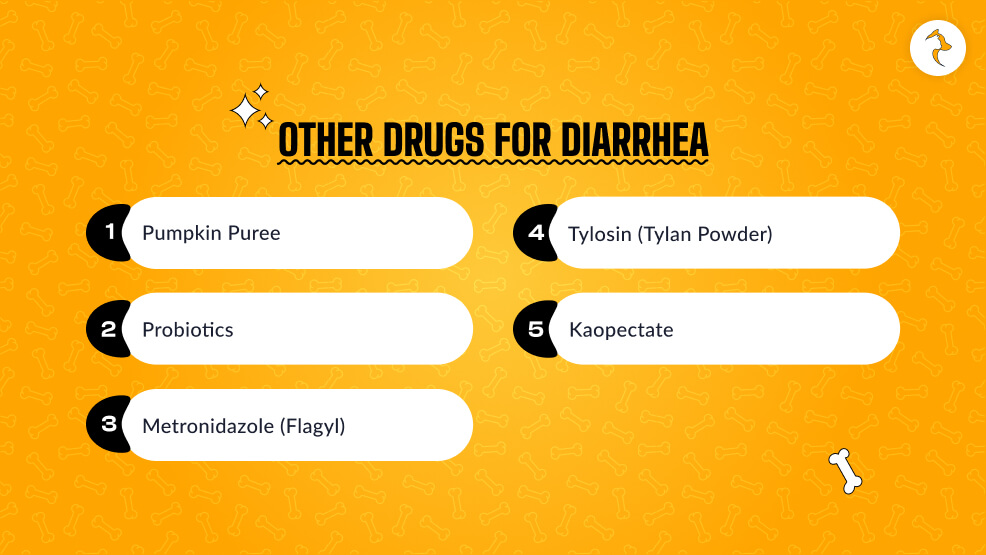
If a veterinarian thinks that Imodium is unsafe for a given dog, the following alternatives are safer:
- Pumpkin Puree: A natural source of fiber that binds stools.
- Probiotics: Aimed to balance the gut flora and help digestion.
- Metronidazole (Flagyl): The most prescribed antibiotic for diarrhea.
- Tylosin (Tylan Powder): Is another prescription antibiotic to treat diarrhea.
- Kaopectate: One of the few over-the-counter anti-diarrheals that are not typically prescribed these days.
Kaopectate vs. Imodium For Dogs
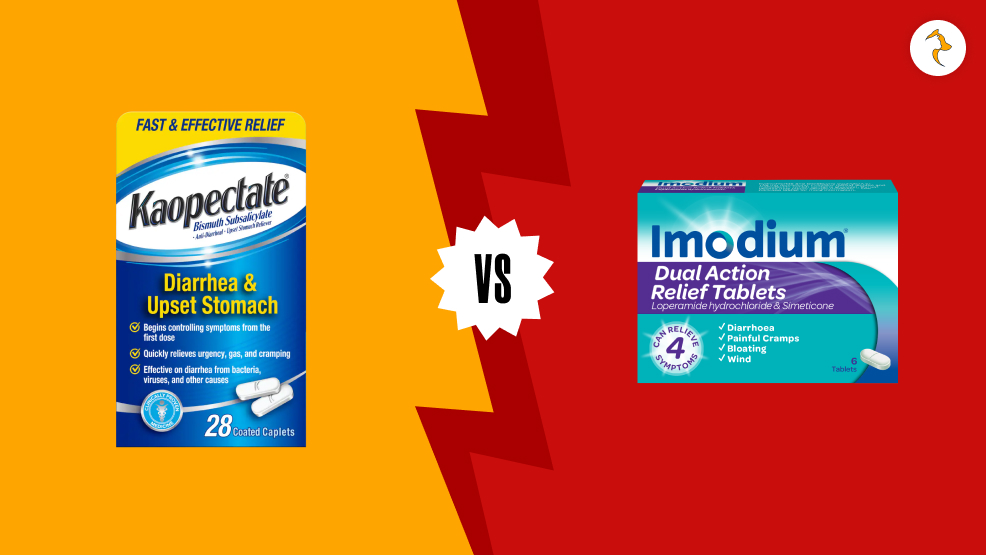
Of these two anti-diarrheal drugs, Imodium and Kaopectate, the top two differences lie in their pathophysiological actions:
- Imodium decreases the incidence of diarrhea by slowing the motility of the intestines.
- Kaopectate lines the lining of the stomach and chelates with toxins.
- Most veterinarians prefer Imodium over Kaopectate; however, this must be done in consultation with their veterinarian.
Use Imodium For Dogs With Pancreatitis:

Use of Imodium is contraindicated for a dog diagnosable with pancreatitis, for indeed, it would worsen the clinical condition due to delays of digesta transit and possibly other collateral complications.
Thus, pancreatitis in dogs is managed with a standard veterinary diet and medications recommended by a veterinary practitioner.
Imodium For Dogs: Safe Or Not?
While dogs can use Imodium for a few days for diarrhea, not every dog is safe to use it, so you should always seek a doctor’s advice first.
Safer alternatives, such as pumpkin puree, probiotics, or even prescription medications through your vet, can help ease a dog’s upset stomach. Call any time your dog shows any other signs, along with diarrhea or anything related.
FAQs (Frequently Asked Questions!)
Here are a few questions and queries that are asked by most pet parents about giving their furry babies Imodium, that might concern you as well.
Imodium is not intended for long-term or chronic use in dogs. Chronic diarrhea often indicates an underlying issue such as food intolerance, parasites, inflammatory bowel disease, or metabolic disorders. Masking symptoms with anti-diarrheal medication can delay diagnosis and worsen the condition.
Extra caution is required with puppies and senior dogs. Puppies are more vulnerable to dehydration and may deteriorate quickly if diarrhea is not properly addressed.
Senior dogs often have underlying conditions or are taking other medications that may interact negatively with Imodium.
For mild, short-term digestive upset, veterinarians often recommend gentler options such as:
• Temporary fasting (when appropriate)
• Bland diets like boiled chicken and plain rice
• Veterinary-approved probiotics
• Increased hydration and electrolyte support
Imodium should be avoided if a dog:
• Has ingested toxins or foreign objects
• Has bloody diarrhea or black stools
• Is vomiting excessively
• Has abdominal pain or swelling
• Has known liver disease
No. Imodium does not treat the underlying cause of diarrhea. It only slows gut motility, which may reduce symptoms temporarily.
Yes. Imodium can interact with other medications, particularly sedatives, pain medications, and drugs that affect the nervous system. These interactions may increase the risk of sedation or neurological complications.
Veterinarians evaluate several factors, including:
• The dog’s breed and genetic risk
• Severity and duration of diarrhea
• Presence of additional symptoms
• Medical history and current medications
• Possible causes of digestive upset
If diarrhea persists for more than 24–48 hours, worsens, or is accompanied by lethargy, dehydration, vomiting, or blood in the stool, veterinary attention is essential.
Yes, veterinarians may prescribe or recommend Imodium in specific, controlled situations where the benefits outweigh the risks.









Leave A Comment